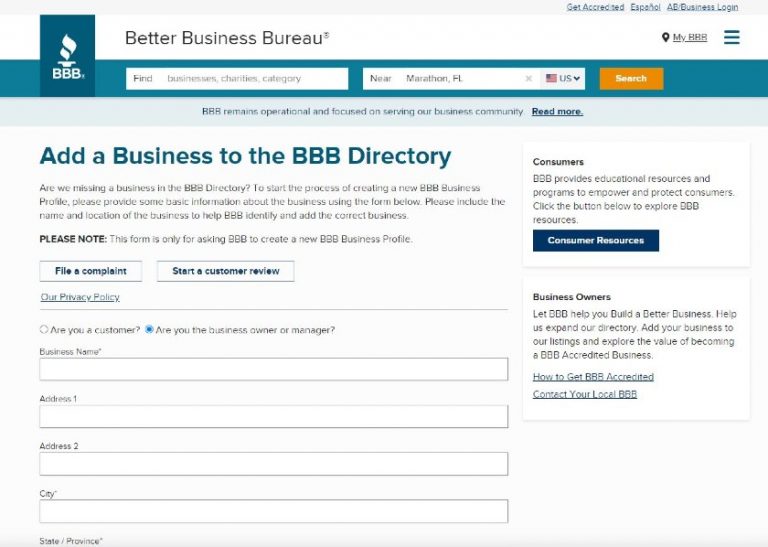Web-Based Directories vs. Search Platforms: Essential Information You Should Have
Web-Based Directories vs. Search Platforms: Essential Information You Should Have
Blog Article

In a vast realm of this internet, discovering right resources can occasionally feel overwhelming. With a plethora of websites competing for recognition, users frequently depend on multiple tools to traverse this online landscape. A couple of essential tools that serve this purpose are website directories and web gateways. Understanding the differences and similarities within these can enhance your online experience and improve the way you discover content.
Web directories are structured collections of websites categorized by topics or categories, making it more convenient for users to find relevant information. On the other hand, web portals serve as extensive gateways that provide not just hyperlinks but also a host of services and resources. By exploring these two notions, you can gain a sharper insight into how they work and ascertain the most suitable approach for your specific information needs.
Understanding Website Directories
Website directories are curated lists of sites organized into categories. They allow users to browse and find information based on defined subjects or interests. In contrast to search platforms, which index the entire web using complex systems, web directories rely on human contribution to classify and list sites. This makes directories particularly helpful for discovering specialized content or resources that may not rank well in online search results.
Real Estate Listings Wonnox Portal
One key feature of web directories is the curation oversight involved in the contribution and classification process. Web owners can submit their sites for inclusion, but they typically undergo review to ensure they meet specific quality standards. This curation helps preserve the integrity of the directory and provides users with a more dependable source of information. As a result, web directories can serve as important tools for finding reliable websites within particular fields.
In spite of the rise of search engines, web directories still maintain significance in the digital environment. They usually provide a more organized experience, allowing users to find resources without sorting through countless search results. Additionally, they can boost exposure for businesses looking to target particular groups, as being listed in a relevant directory can attract visitors from users seeking particular types of data.
The Function of Web Search Tools
Search engines have changed the way users browse the internet. In contrast to web directories, which organize websites by hand, search engines utilize algorithms to index and fetch information from a vast collection of content online. This automated process allows users to find appropriate information rapidly, often in instantly, based on their queries. The speed and efficiency with which search engines operate have made them the primary means for online information retrieval.
In practical terms, search engines provide results that are systematically ranked based on various factors such as relatedness, authority, and user interaction. This ranking system means that the most important results to a user's search query appear at the front of the list, giving users access to credible information. As a result, many individuals trust significantly on search engines for their daily internet use, which influences the visibility of websites and the strategies they employ for search engine optimization.
Moreover, search engines are designed to process a greater range of content than traditional web directories. They can index not only websites but also photos, films, news articles, and more. This ability makes search engines an essential tool for users seeking varied information types and sources. As the internet continues to grow, search engines will likely progress further, impacting how we retrieve and utilize information on the web.
Comparing Online Directories versus Search Engines
Web directories and search engines serve different functions in browsing the internet, each with unique features that meet different requirements. A directory is a compiled collection of websites organized by groups and subcategories, making it simple for users to find relevant data based on their interests. In comparison, search tools utilize complex computational methods to index the vast amount of content available on the web, providing a more systematic approach to discovering sites based on search requests.
One major distinction lies in the way content is added and managed. Online directories rely on manual editors who examine and categorize submissions, ensuring quality and pertinence. This manual curation can lead to a more structured environment, where individuals have confidence in the categorized information. On the flip side, search engines continuously crawl the web, systematically indexing new content without human intervention, which can result in a vast volume of data but varies in quality and accuracy.
In summary, while both online directories and search tools are valuable resources for locating data on the internet, their methodologies and user interactions differ significantly. Online directories offer a more guided and curated approach, making them perfect for users seeking specific categories of data, while search engines excel at providing a wide array of outcomes quickly based on keywords. Recognizing these distinctions can help users choose the appropriate resource for their internet browsing requirements.
Report this page